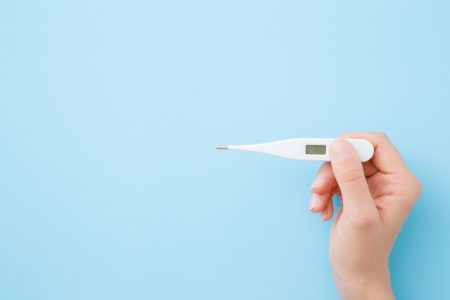Tracking Ovulation – The Pros & Cons
Posted by Christina Pistotnik

I typically get many questions regarding monitoring ovulation because there can be a lot of confusion around whether or not to do it. And if deciding to monitor, how should ovulation be tracked? I’m going to break down the pros and cons of both so that you can make a decision that best suits your needs.
The Pros and Cons of Monitoring Ovulation
Some of the benefits of monitoring ovulation are that it can provide:
- a better sense of when fertility is the highest.
- insight into whether ovulation is happening regularly or at the same time in the cycle.
- a sense of control and empowerment when fertility challenges often lead to a feeling of having no control.
- more self-awareness about your body and what is going on.
Some drawbacks to monitoring ovulation are that:
- ovulation predictor kits (OPK) or higher tech devices can be pricey.
- daily monitoring (through Basal Body Temperature (BBT) or during the follicular phase with OPK’s) can add to fertility stress.
- potential false or unclear results can be confusing.
- it’s not always accurate for everyone. For example for people who have PolyCystic Ovarian Syndrome (PCOS).
Ways to Monitor Ovulation
OPK’s
As mentioned above, this can be an expensive option. However, at Whole Family Health we offer basic less costly tests. We suggest using these inexpensive ones until the test line gets darker and then confirming with a more costly higher-tech one that provides a clear ‘yes’ or happy face, which is less confusing.
These need to be used daily until you get a positive – typically starting on Cycle Day 10. However, when to test does depend on the length of your cycle or if you’re using ovulation medication.
BBT
This is a very inexpensive option, but it has to be done every day and must be checked prior to getting out of bed in the morning.
This method only gives you an indication of when ovulation has already happened, so it only signals the fertile window after the fact. However, it can provide you with insight into when you are likely most fertile for your next cycle.
BBT chart templates can be found for free, or apps can be downloaded so the only cost is the purchase of a BBT thermometer. These can be found at most pharmacies.
Cervical Mucus Monitoring
Cervical mucus monitoring can be done on its own but it is best done in combination with OPK and/or BBT monitoring.
This can require a bit more patience with knowing what you are looking for and how to look for cervical mucus, but it is free to do, so it is affordable.
Tech Monitoring
There are multiple tech devices on the market to aid in ovulation monitoring and some are accurate than others.
Using a basic phone calendar app can give you the wrong information. This is because it uses an algorithm based on your cycle length and what an average person’s fertile window is. Some people don’t ovulate within these guidelines.
The more accurate higher tech devices can be really expensive but offer more accuracy and insight into your reproductive cycle.
Some examples are:
- Mira Fertility Tracker: Daily hormone measurements
- Lady-Comp: Daily BBT measurements
- Tempdrop: Daily BBT measurements
- OvaCue: Measures electrolytes in saliva and cervical mucus
Not Monitoring Ovulation
If regular ovulation testing is not preferred, I typically suggest having intercourse every second day from cycle days 10-18 – providing your cycle length is between 25-32 days.
If your cycle is shorter then I recommend trying to conceive on cycle days 8-16 and if your cycle is longer, then I recommend trying to conceive on cycle days CD 12-20.
Pros:
The pros of not monitoring are that you’re not testing daily which can otherwise lead to tunnel vision around fertility and conception. So not monitoring can ease some fertility stress. Intercourse can also then be more spontaneous and not feel like as much of a job or a chore.
Cons:
The cons of not monitoring is that you could miss ovulation days since ovulation doesn’t always happen mid-cycle. Some people could have a short follicular phase (phase prior to ovulation) or a short luteal phase (phase after ovulation) which means varying ovulation times.
At Whole Family Health our acupuncture and TCM fertility specialists are always happy to talk things through to help navigate the nuances associated with fertility tracking and care.
If you would like to find out more about how we can help you, please feel free to contact us to schedule a free 15-minute phone consultation.
